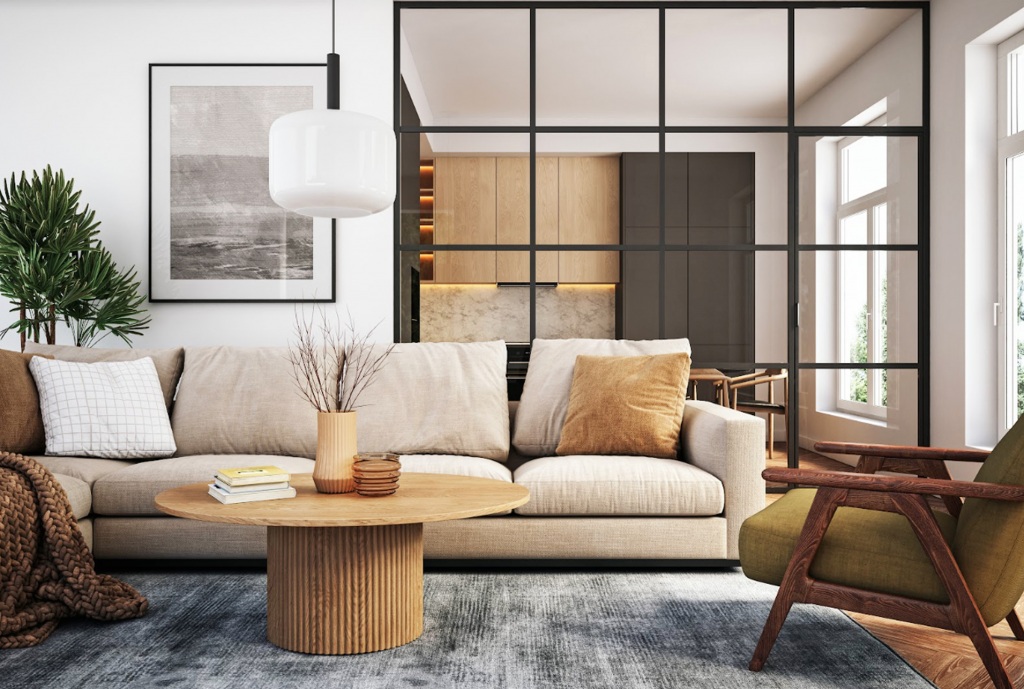
How to design your home for your current needs and future plans
Styling your home is not just about aesthetics—it is about creating a space that truly fits your way of life and adapts as your needs evolve. Whether you are a young professional, a growing family, or a retiree looking to downsize, the way you design and furnish your home should reflect both your current lifestyle and future aspirations. Here is how to approach styling your home to align with your unique life stage.
Assess Your Current Needs and Lifestyle
Start by evaluating your current lifestyle. Are you a busy professional who values minimalism and convenience? Or are you a parent who needs plenty of functional space for children? Your home should cater to your day-to-day activities and routines. Consider factors such as how often you entertain, whether you need a home office, and if you have hobbies that require dedicated space.
Consider Your Life Stage
Different life stages often come with changing needs. For instance, a young couple might focus on creating a stylish and functional space for entertaining guests, while a growing family may prioritise durable materials and plenty of storage. As you transition to different stages—whether starting a family, managing a household with teenagers, or preparing for retirement—your home design should evolve accordingly.
Prioritise Functionality
Functionality should be at the heart of your home design. For families with young children, opt for materials that are easy to clean and durable, such as stain-resistant fabrics and hard-wearing surfaces. In contrast, if you are single or living with a partner, you might prioritise design elements that cater to relaxation and socialising, like a comfortable lounge area and a well-appointed kitchen.
Embrace Flexibility
Life is dynamic, and so should be your home design. Look for furniture and decor that can easily be rearranged or repurposed. Modular furniture, adjustable shelving, and multi-functional pieces can adapt to your changing needs. For example, a guest room can double as an office or a play area with the right furnishings.
Reflect Your Personal Style
While functionality is crucial, your home should also be a reflection of your personal style. Incorporate elements that resonate with you and make you feel at home. Whether it is through artwork, colour schemes, or unique furniture pieces, let your personality shine through in your design choices.
Plan for the Future
Think about how your needs might change in the coming years. If you are planning to start a family, consider incorporating elements that will accommodate children. If you are nearing retirement, think about accessibility and ease of maintenance. Design your space so it can grow with you, reducing the need for major renovations down the line.
Seek Professional Advice
If you are unsure how to balance style and functionality, consulting a professional can be invaluable. Interior designers can offer insights tailored to your lifestyle and help you make informed decisions that align with your needs and preferences.
In essence, styling your home to suit your lifestyle and life stage is about creating a space that works for you today while being adaptable for tomorrow. By focusing on functionality, flexibility, and personal style, you can ensure your home remains a comfortable and stylish haven through all stages of your life.
Share This Article
Previous Articles
- February 2025 2
- October 2024 1
- September 2024 1
- August 2024 1
- July 2024 1
- June 2024 1
- May 2024 3
- April 2024 2
- March 2024 1
- February 2024 1
- November 2023 1
- October 2023 1
- September 2023 1
- August 2023 1
- July 2023 1
- June 2023 1
- May 2023 2
- April 2023 1
- March 2023 1
- February 2023 1
- January 2023 1
- December 2022 1
- November 2022 3
- October 2022 1
- September 2022 2
- August 2022 1
- July 2022 4
- June 2022 3
- May 2022 2
- April 2022 1
- March 2022 1
- February 2022 1
- January 2022 1
- October 2021 1
- September 2021 4
- August 2021 1
- July 2021 2
- May 2021 1
- April 2021 2
- March 2021 2
- February 2021 1
- January 2021 2
- December 2020 2
- November 2020 2
- October 2020 2
- August 2020 1
- May 2020 2
- April 2020 2
- November 2019 1
- October 2019 1
- August 2019 1
- July 2019 1
- June 2019 1
- May 2019 1
- February 2019 1
- January 2019 1
- October 2018 1
- September 2018 1
- July 2018 2
- June 2018 2
- May 2018 1
- April 2018 2
- March 2018 3
- January 2018 1
- December 2017 3
- November 2017 1
- October 2017 1
- August 2017 1
- July 2017 1
- June 2017 5
- May 2017 31
- April 2017 30
- March 2017 32
- February 2017 28
- January 2017 31
- December 2016 31
- November 2016 29
- October 2016 30
- September 2016 30
- August 2016 26
